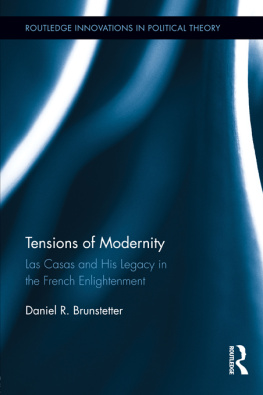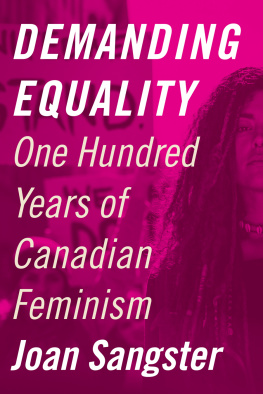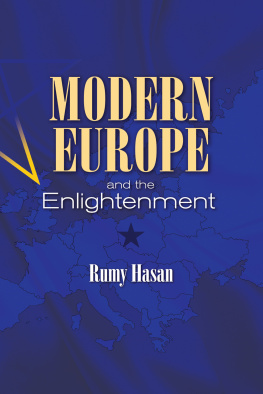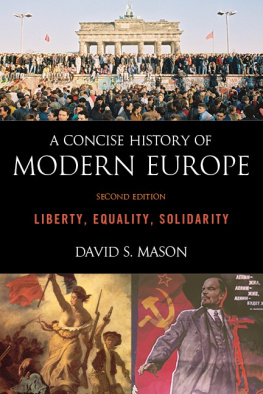The Color of Equality
INTELLECTUAL HISTORY OF THE MODERN AGE
Series Editors
Angus Burgin
Peter E. Gordon
Joel Isaac
Karuna Mantena
Samuel Moyn
Jennifer Ratner- Rosenhagen
Camille Robcis
Sophia Rosenfeld
THE COLOR OF EQUALITY
Race and Common Humanity
in Enlightenment Thought
Devin J. Vartija
University of Pennsylvania Press
Philadelphia
Copyright 2021 University of Pennsylvania Press All rights reserved.
Except for brief quotations used for purposes of review or scholarly citation, none of this book may be reproduced in any form by any means without written permission from the publisher.
Published by
University of Pennsylvania Press
Philadelphia, Pennsylvania 19104-4112
www .upenn .edu / pennpress
Printed in the United States of Amer ica on acid- free paper 10 9 8 7 6 5 4 3 2 1
A Cataloging- in- Publication record is available from the Library of Congress
ISBN 978-0-8122-5319-1
To my parents
CONTENTS
Enlightenment thinkers pre sent us with a predicament: they politicized the concept of equality while si mul ta neously making the naturalization of inequalities between Eu ro pe ans and non- Europeans thinkable. What are we to make of this tension in Enlightenment thought? Scholars have often viewed this situation as a dichotomy: either the Enlightenment was an emancipatory intellectual movement foundational to the modern, liberal demo cratic defense of human rights, or it is the primary culprit in the dark side of modernity, from scientific racism and sexism to colonialism and even genocide. Sensible intellectuals have interjected that this dichotomy between ac cep tance or rejection of the Enlightenment is in fact misguided. As Barbara Taylor explains, the Enlightenment proj ect that postmodernists chastise and liberals defend cannot survive even a cursory glance at the noisily argumentative world of Enlightenment, with its multiple renditions of reason and truth purveyed by lively minds of diverse sorts, from Encyclopedists and philosophical theologians to bluestockings and Grub Street hacks of both sexes.1 Over the past three to four de cades, our appreciation for just how noisy that argumentative world of Enlightenment was has been deepened thanks to the pluralization of the Enlightenment.
What was once seen as a relatively monolithic intellectual movement centered around the ideas held by a handful of men in mid- eighteenth- century Paris has now become a vast collage of women and men active in vari ous seventeenth- and eighteenth- century Eu ro pean and colonial cities, belong-ing to a variety of institutions, and holding a diverse array of ideas.
In these debates, equality and race are recurrent themes, as it is generally accepted that Enlightenment thinkers fundamentally altered the way we think about human sameness and difference. Whereas people were once viewed as equal only in terms of souls in an otherworldly realm, Enlightenment thinkers postulated the basic equality of human beings in this world, based on shared rational and emotive capacities. Yet just as worldly hierarchies
2 Introduction
were being called into question, the philosophes also sought naturalistic explanations of human differences and thus laid the groundwork for postulating that natu ral inequalities might permanently separate human groups from one another. As our understanding of the Enlightenment has become more capacious, it makes it difficult to disentangle the messy history of Enlightenment, equality, and racial classification. This study aims to make sense of this complicated history by searching for the ways in which equality and race, human sameness and difference, may have been linked in Enlightenment thought.2 How was the tension between these ideas dealt with and possibly resolved? And what do transformations in thinking about equality and race tell us about the Enlightenment as an intellectual movement?
To address these questions, I have chosen three influential Enlightenment encyclopedias as my main corpus of primary sources: Ephraim Chamberss Cyclopaedia (London, 1728), Denis Diderot and Jean le Rond dAlemberts Encyclopdie (Paris, 17511765), and Fortunato Bartolomeo De Felices Encyclopdie dYverdon (Yverdon, 17701775).3 These encyclopedias form a genealogy in that each work explic itly drew on the material of its pre de ces sor. Chamberss Cyclopaedia may be considered the first modern
encyclopedia, because it was alphabetically ordered, was grounded in Lockean epistemology, and pop u lar ized Newtonian science.4 Diderot and dAlemberts Encyclopdie began as a translation of Chamberss work but, principally thanks to Diderots leadership, was expanded im mensely and is widely considered the most impor tant work of the Eu ro pean Enlightenment.5 With the Encyclopdie dYverdon, De Felice aimed to update and correct its Pa ri sian pre de ces sor, as well as to excise the more libertarian and atheistic ideas and install liberal Protestant theology in their place. While much remains the same between these two encyclopedias, scholars stress that many of the impor tant, lengthy articles those that extend beyond a simple definition of a few sentences were reworked by De Felice and his collaborators.6 These encyclopedias capture three moments in the intellectual history of the Enlightenment: early eighteenth- century England, mid- eighteenth- century France, and mid- to late eighteenth- century Switzerland. This set of sources thus brings forth not only the distinctiveness of par tic u lar national or regional po liti cal, philosophical, and religious debates but also the pan- European nature of the Enlightenment.
Because my focus is primarily on Enlightenment ideas of equality and race, my use of encyclopedias in general, as well as these encyclopedias
Introduction 3
in par tic u lar, as a main corpus of primary sources requires explanation.
Encyclopedias were im mensely impor tant texts in early modern Eu rope, as they responded to the surge of printed material following the invention of moveable type print and aimed to distill essential information from the ever- expanding mass of printed texts into an easily accessible reference work.7 In the prospectus to the Encyclopdie, Diderot attributed the spread of enlightenment since the Re nais sance to, in large mea sure, the availabil-ity and use of reference works: One cannot dispute that since the rebirth of letters among us, we partially owe to dictionaries the general enlightenment that has spread throughout society and this germ of science which imperceptibly disposes minds to a more profound knowledge.8 Charles-Joseph Panckoucke, the most impor tant publisher in late eighteenth- century France, echoed this sentiment, stating that the Encyclopdie will always be the first book of any library or cabinet.9
These specific encyclopedias will allow me to bring to the fore some of the key issues in the development of Enlightenment thought. John Locke and Isaac Newton have long been associated with the early Enlightenment, and Chamberss work fits well into the consolidation of what we might call an
early Enlightenment culture.10 From its inception in the 1740s, contemporaries recognized the Encyclopdie as crystallizing and embodying an intellectual movement, one that pushed forward the strug gles surrounding Newtonianism and philosophical liberty, as well as the attack on both orthodox religious dogma and absolute po liti cal authority.11 Including the Encyclopdie dYverdon allows me to interrogate how thinkers of a diff er ent confessional standpoint within the Enlightenment used ideas of equality and race. Given that the issue of a radical versus a moderate Enlightenment, in addition to vari ous confessional Enlightenments, is a pressing topic in the current historiography, the
Next page






